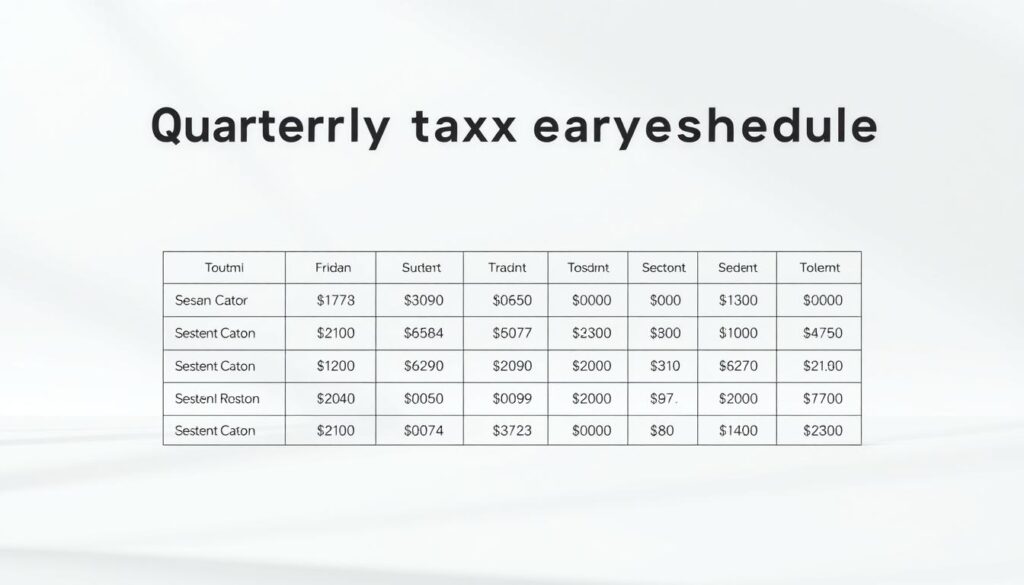Crypto tax rules for freelancers are now more important than ever. More clients are paying in cryptocurrency. Freelancers need to know how the IRS handles these payments. This guide will help you understand how to handle freelancer cryptocurrency taxes.
Freelancers dealing with crypto face special challenges. They must balance their self-employment taxes with the ups and downs of digital assets. The IRS sees crypto as property, which means you’ll face capital gains taxes on sales and income taxes on payments.
This article will cover what you need to report, how to keep records, and ways to reduce your tax burden.
Key Takeaways
- Crypto payments count as taxable income for freelancers at fair market value.
- Freelancer cryptocurrency taxes require tracking every transaction’s date, type, and value.
- IRS guidelines treat crypto sales as capital gains, impacting tax rates.
- Failure to report crypto income can lead to penalties for self-employed workers.
- Tools like crypto tax software simplify compliance for freelancers handling digital assets.
Understanding Crypto Tax Implications for Freelancers
Freelancers using cryptocurrency face unique tax challenges. Unlike traditional income, crypto payments require tracking every transaction’s value and timing. The tax implications of freelancing with crypto demand precise record-keeping to avoid penalties.
Why Freelancers Face Unique Crypto Tax Challenges
Freelancers report income independently, making crypto’s volatility a major hurdle. Key issues include:
- Calculating income based on crypto’s value at receipt
- Reporting capital gains on every transaction
- No employer assistance with tax forms
The Intersection of Self-Employment and Cryptocurrency Taxation
Crypto income complicates self-employment taxes. Since the IRS classifies crypto as property, every payment triggers capital gains calculations. Freelancers must:
- Report crypto income on Schedule C
- Pay self-employment taxes on all crypto-derived revenue
Recent IRS Guidance on Digital Assets
IRS cryptocurrency tax rules clarify reporting requirements. Key documents like Notice 2014-21 and Revenue Ruling 2019-24 require:
- Reporting crypto income at fair market value
- Tracking every sale, exchange, or payment received
- Using Form 8949 for transactions
Recent updates stress penalties for underreporting crypto gains. Freelancers must stay updated to comply with evolving regulations.
How the IRS Classifies Cryptocurrency for Tax Purposes
The Internal Revenue Service (IRS) views cryptocurrency tax rules as property, not money. This means every transaction with crypto, like Bitcoin or Ethereum, must follow specific tax rules. Freelancers who get paid in crypto need to keep track of their income and how the value of their assets changes.
When you get crypto as payment, its value at that time is your starting point. Selling or trading crypto later can lead to capital gains taxes, based on how long you held it. Mining, staking, or getting crypto through airdrops also need to be reported as property transactions. For instance, mined crypto is taxed when it’s fully mined, based on its USD value.
- Crypto payments = ordinary income at receipt
- Trading crypto = capital gain/loss event
- Mining/staking = taxable as self-employment income
Not reporting crypto transactions can lead to audits and penalties. It’s crucial to keep detailed records of all activities. This includes dates, values, and types of transactions. Knowing how the IRS classifies crypto helps you follow their rules and avoid trouble.
Income Recognition: When Crypto Payments Become Taxable
Freelancers who get paid in cryptocurrency need to know when they must pay taxes. It’s important to know when and how much to value these payments. This helps avoid penalties and keeps you in good standing with the IRS.
Fair Market Value Determination
Find out the value of your crypto income right when you get it. Use exchange rates from trusted sites like Coinbase or Binance. If the market is changing fast, make sure to note the exact time of the transaction.
For example, if you get 0.1 BTC for a job, find out its USD value at that exact moment. You can use CoinMarketCap for this.
Timing of Income Recognition
Remember, you have to report your crypto income as soon as you get it. Don’t wait until you convert it to dollars. Report the USD value on Schedule C right away. This is important for figuring out any future capital gains.
Currency Conversion Documentation
- Track exchange rates when converting crypto to USD
- Save transaction IDs and timestamps for all conversions
- Maintain records of fees paid during exchanges
The IRS wants proof of every transaction’s value at the time of transfer. Not having this can lead to audits and penalties.
Capital Gains vs. Ordinary Income: What Freelancers Need to Know
Freelancers using cryptocurrency must know how tax rules apply to different types of income. The difference between capital gains and ordinary income affects their taxes. They need to track when and how they use their crypto.
Short-Term vs. Long-Term Capital Gains
Short-term gains are for crypto held less than a year, taxed like regular income. Long-term gains, held over a year, get lower rates. For example, selling crypto after 10 months is taxed higher than after 14 months.
Calculating Your Crypto Cost Basis
Cost basis is key to figuring out taxable profit. There are a few ways to do this:
- FIFO: First-in, first-out means selling the oldest crypto first.
- LIFO: Last-in, first-out uses the newest purchases first.
- Specific Identification: You can choose which coins to sell for better tax results.
Freelancers must keep track of when and how much they bought their crypto to use these methods right.
The Wash Sale Rule and Cryptocurrency
The IRS doesn’t apply the wash sale rule to crypto yet. This rule stops you from claiming tax losses if you buy similar things within 30 days. But, rules can change. Keep an eye on updates to avoid trouble.
Self-Employment Tax Considerations for Crypto Earners
Crypto income from freelancing means you have to pay self-employment tax. Self-employed tax tips say this 15.3% tax (Social Security and Medicare) applies to all your crypto business income. This includes earnings in Bitcoin, Ethereum, and other digital assets.
Changes in crypto prices make things tricky. For instance, if you bill in USD but get paid in crypto later, the fair market value at payment time is what you report. Keeping track of these changes is key to not underreporting. Here’s how to handle it:
- Report all crypto payments as self-employment income on Schedule C.
- Adjust net earnings using IRS guidelines when crypto values shift between billing and settlement.
- Classify crypto activities: Mining or staking for profit may count as self-employment income, not investment gains.
Freelancer tax planning must also consider the self-employment tax deduction. You can deduct half of the tax paid as a business expense on Schedule 1. For example, $10,000 net earnings result in $1,530 SE tax. You can deduct $765 of this as a business expense.
The IRS says trading digital assets for clients is self-employment income. Don’t mistake crypto payments for capital gains—this could lead to audits. Use crypto tracking tools to log every transaction. This helps meet freelancer tax planning needs.
Essential Record-Keeping Practices for Crypto Transactions
For freelancers, keeping accurate records is crucial when dealing with freelancer cryptocurrency taxes. The IRS wants detailed records to check income and expenses. Following crypto tax reporting guidelines helps avoid trouble. Without good records, even legal transactions might face audit questions.

Transaction Logging Best Practices
- Record every transaction with date, time, and fair market value at the time of the exchange.
- Note the purpose (payment, sale, transfer) and counterparty details in real time.
- Use spreadsheets or software to automate data capture, avoiding retroactive estimates.
Wallet Management for Tax Purposes
Use separate wallets for different types of income. Have one for client payments, another for trades, and one for personal use. Keep backup copies of private keys safely but make sure tax records are easy to find. This way, you can avoid losing important data and still have everything ready for audits.
Handling Multiple Exchanges and Platforms
- Link all accounts to tax software using API integrations for real-time data pulls.
- Reconcile exchange reports monthly to track transfers between platforms and wallets.
- Flag discrepancies early to avoid mismatched records during filing.
IRS audits look closely at how transactions match up across different platforms. Being proactive in organizing your records helps avoid mistakes. It also makes following crypto tax reporting guidelines easier.
Tax Forms Freelancers Need for Reporting Cryptocurrency
Freelancers using cryptocurrency must follow specific crypto tax reporting guidelines to avoid penalties. The IRS needs accurate documentation through key forms. Start with Schedule C to report crypto income earned as payment for services. This form details business revenue, including crypto received from clients.
Next, Schedule D and Form 8949 track capital gains or losses from crypto trades. Freelancers holding crypto over a year may qualify for lower long-term rates.
If crypto assets exceed $10,000, Form 8938 may apply for foreign holdings. All taxpayers must answer the “Did you receive, sell, send, exchange, or otherwise acquire any financial interest in any virtual currency?” question on Form 1040. Freelancers also might receive 1099-MISC for client payments, 1099-K from payment platforms, or 1099-B from exchanges. These forms must match personal records to avoid discrepancies.
Effective freelancer tax planning requires reconciling IRS-reported data with your own logs. For example, a client paying in Bitcoin must issue a 1099-MISC if over $600. Always report crypto income on Schedule C even if no form is received. Misreporting risks audits, so review crypto tax reporting guidelines annually for updates. Professional tax advisors can clarify complex scenarios like staking or airdrops.
Deductible Expenses for Freelancers Working with Digital Assets
Freelancers can use freelance tax deductions to reduce their taxable income. Self-employed tax tips stress the importance of tracking business costs related to crypto. Keeping detailed records helps stay compliant and save money.
Home Office Deductions for Crypto Traders
Freelancers can deduct a home office deduction if they have a dedicated space for crypto trading. They can use the IRS standard rate or actual expenses based on business use. It’s important to have proof of regular or exclusive use.
Mining and Staking Expense Deductions
- Hardware costs: Depreciate mining rigs or staking devices over their useful life.
- Utility bills: Allocate electricity expenses proportionally to crypto activities.
- Software and maintenance: Include updates, repairs, and security tools directly tied to operations.
Professional Service Fees
Expenses like blockchain consultant fees and crypto tax preparation software (e.g., TurboTax crypto guides) are deductible. But, avoid claiming personal investment expenses, as they have limited deductibility under IRS rules.
Each deduction must be directly related to earning crypto income. Keep records for equipment, service contracts, and utility allocations. Good documentation is key for audits and keeping up with tax changes.
Quarterly Estimated Tax Payments for Crypto Income
Freelancers earning crypto need to plan ahead for quarterly tax payments. The crypto income tax obligations require payments in April, June, September, and January. Missing these deadlines can lead to penalties, even if taxes are paid later.

To start, freelancers must estimate their annual crypto earnings. They can use Form 1040-ES worksheets for this. But, crypto values can be unpredictable, making this task harder.
There are ways to manage this. For example, freelancers can convert a fixed percentage of their crypto income to fiat right away. They can also keep funds in stablecoins or use tax-optimized wallets. The IRS allows payments through the Electronic Federal Tax Payment System (EFTPS) or credit cards.
- Set aside 10-30% of crypto profits for tax reserves
- Track price fluctuations when valuing prior quarters
- Use crypto tax software to auto-calculate quarterly estimates
Penalties apply if payments are less than 90% of actual tax liability. Freelancer tax planning must include these deadlines. To avoid penalties, automate transfers to tax accounts or use escrow services for stable reserves.
The IRS offers penalty relief for “safe harbor” payments that are 110% of the prior year’s liability. Stay on track by reconciling payments quarterly and adjusting estimates as income changes.
Common Tax Pitfalls Freelancers Face with Cryptocurrency
Freelancers using crypto often overlook key cryptocurrency tax rules, risking penalties. The IRS now focuses more on audits of digital asset transactions, especially for self-employed workers. Here are three mistakes to avoid when dealing with the tax implications of freelancing with crypto:
Underreporting Crypto Income
- Many freelancers ignore small crypto payments, thinking they’re exempt. Even tiny transactions are taxable income.
- Crypto-to-crypto exchanges are taxable events. For example, trading Bitcoin for Ethereum triggers capital gains.
- IRS Form 1040 now includes crypto questions, signaling increased scrutiny.
Missing Documentation Issues
Old wallets or defunct exchanges often erase transaction records. Without proof of cost basis or dates, audits become high-risk. Strategies include:
- Archiving screenshots of old transactions.
- Reconstructing histories using blockchain explorers like Etherscan.
Exchange Reporting Inconsistencies
Some platforms issue incorrect 1099-K forms. If reported income differs from actual trades, freelancers must reconcile discrepancies manually. The IRS holds taxpayers responsible even if exchanges err.
Proactive steps like using tax software (e.g., CoinTracker, CryptoTaxCalculator) or consulting CPAs specializing in crypto can prevent errors. Correcting past mistakes via Form 1040-X avoids penalties.
State Tax Implications Beyond Federal Requirements
Freelancers using crypto must understand state tax rules, which can differ from federal ones. The IRS views crypto as property, but states like Wyoming and Nevada have more lenient crypto tax rules. On the other hand, states like California and New York have stricter reporting rules. Knowing these state-specific rules is key to avoiding penalties.
- States with no income tax (e.g., Florida, Texas) simplify reporting but may still require crypto disclosures
- States like Arizona mandate crypto income reporting on state tax forms
- California treats crypto gains as taxable income even for self-employed individuals
Digital nomads face challenges when working across state lines. Income sourcing rules decide which state taxes apply. For example, Wyoming has no personal income tax and no crypto taxation, making it attractive for crypto freelancers. Self-employed tax tips include:
- Tracking transactions by state jurisdiction
- Consulting resources like state tax department websites
- Maintaining records of physical presence in each state
States often change their crypto tax rules. Freelancers in crypto need to keep up with these changes. It’s important to stay informed about state tax rules to avoid audits and penalties. Tax experts suggest checking crypto transactions annually using state-specific criteria.
Tax Planning Strategies to Minimize Your Crypto Tax Burden
Effective freelancer tax planning means taking steps to lower crypto taxes. Self-employed tax tips include selling assets at the right time and using tax-advantaged accounts. Here are some key strategies:

- Tax-loss harvesting: Sell losing positions to offset gains before year-end. This way, you reduce taxable profits without changing your investment goals.
- Income timing: Wait to receive crypto payments until the next year. This can help you pay less in taxes by taking advantage of lower tax brackets.
- Entity structuring: If you earn a lot from crypto, consider forming an LLC or S-Corp. This separates your personal and business transactions.
Using retirement accounts like Solo 401(k)s for crypto can save on taxes. Donating appreciated crypto to charity avoids capital gains and gives you a tax deduction. Options like opportunity zone investments or installment sales can also lower taxes. But, always follow IRS rules—get advice from a tax expert to make sure you’re legal.
It’s important to balance self-employed tax tips with risk management. This ensures you’re following the rules while saving money. Keep detailed records to support your tax filings.
Tools and Software for Crypto Tax Compliance
Freelancers with crypto income need good tools to follow crypto tax rules and get the most from their tax deductions. These tools make tracking, reporting, and fitting into your workflow easier.
Crypto Tax Calculation Platforms
Automated platforms make following rules easier. Some top choices are:
- CoinTracker: Tracks trades, makes IRS forms, and connects with exchanges
- Koinly: Figures out cost basis and tracks expenses for tax deductions
- TaxBit: Offers real-time reports and audit trail features
- CryptoTrader.Tax: Has advanced tools for complex portfolios and exports IRS Form 8949
Look at different prices based on how many transactions you do and what you need to export.
Blockchain Analytics Tools
Tools like Elliptic and Chainalysis help understand on-chain activity. They offer:
- Tracking transactions to find taxable events
- Ready-for-audit records for the IRS
- Alerts for trades or transfers you haven’t reported
Accounting Software Integrations
Connect crypto data with QuickBooks, Xero, or FreshBooks. Benefits include:
- Reporting both crypto and fiat income together
- Tracking expenses in one place for tax deductions
- Custom reports for tax season prep
Pick integrations that fit your workflow and budget. Always check data accuracy and keep security in mind when sharing API access with third-party tools.
Preparing for the Future of Digital Asset Taxation
Cryptocurrency tax rules are changing, and freelancers need to keep up. New rules on reporting and changes to the wash sale rule show how laws are adapting. Also, new laws require crypto brokers to report transactions, making tax prep more complex.
Freelancers using crypto for work or trades must watch these changes closely. This is because tax rules are getting stricter.
Global tax agencies are working together more, sharing data on digital assets. Central bank digital currencies (CBDCs) might make tax rules even more complex. Freelancers working abroad or with global exchanges need to stay informed to avoid penalties.
For reliable updates, check out Forbes’ 2025 crypto tax guidance and talk to experts. IRS alerts and tax pros who know digital assets can offer valuable advice.
To be ready for future tax rules, freelancers should start using tools and keeping good records now. Being proactive helps avoid problems as laws get stricter. Staying educated and flexible is key to managing tax compliance.
FAQ
What are the crypto tax implications for freelancers?
Freelancers must report cryptocurrency as business income. This income is taxed as ordinary income and self-employment tax. They also face capital gains tax when selling or trading crypto. It’s important to know the difference between ordinary income and capital gains for tax reporting.
How does the IRS classify cryptocurrency for tax purposes?
The IRS sees cryptocurrency as property, not money. Freelancers must report it as income based on its value at the time received. Selling or trading it can lead to capital gains or losses, which must also be reported.
What are the best practices for record-keeping with crypto transactions?
Freelancers should keep detailed records of all crypto transactions. This includes dates, amounts, and the purpose of each transaction. Using a logging system and documenting currency conversions and fair market values is recommended. This ensures accurate reporting during tax season.
What tax forms do freelancers need for reporting cryptocurrency?
Freelancers need to file Schedule C for crypto income. They also need Schedule D and Form 8949 for capital gains and losses. Form 8938 might be needed for foreign exchanges. They should also watch for 1099 forms from exchanges or payment platforms.
How can freelancers minimize their crypto tax burden?
To reduce taxes, freelancers can use tax-loss harvesting and optimize income recognition. They can also invest in retirement accounts for crypto. Setting up an LLC or S-Corp might offer tax benefits. Donating appreciated crypto can avoid capital gains taxes.
What are common tax pitfalls freelancers encounter with cryptocurrency?
Common mistakes include underreporting crypto income and missing documentation. Freelancers should understand their tax obligations and keep detailed records. This helps avoid penalties and complications during audits.
Are there any state tax implications freelancers should be aware of when dealing with crypto?
Yes, state tax laws on crypto vary. Some states follow federal rules, while others have their own. Freelancers should know the specific filing requirements and nexus rules of each state, especially if working in multiple places or considering residency in crypto-friendly states.
What self-employment tax considerations should freelancers keep in mind regarding crypto earnings?
Freelancers must pay self-employment tax on their crypto income. The rate is 15.3%. They should accurately calculate this tax to comply, especially with changing crypto values.
What tools can assist freelancers with crypto tax compliance?
Freelancers can use crypto tax platforms like CoinTracker and Koinly. Blockchain analytics tools and accounting software integrations help track transactions. The right tools can make tax reporting easier and ensure IRS compliance.


No comments yet